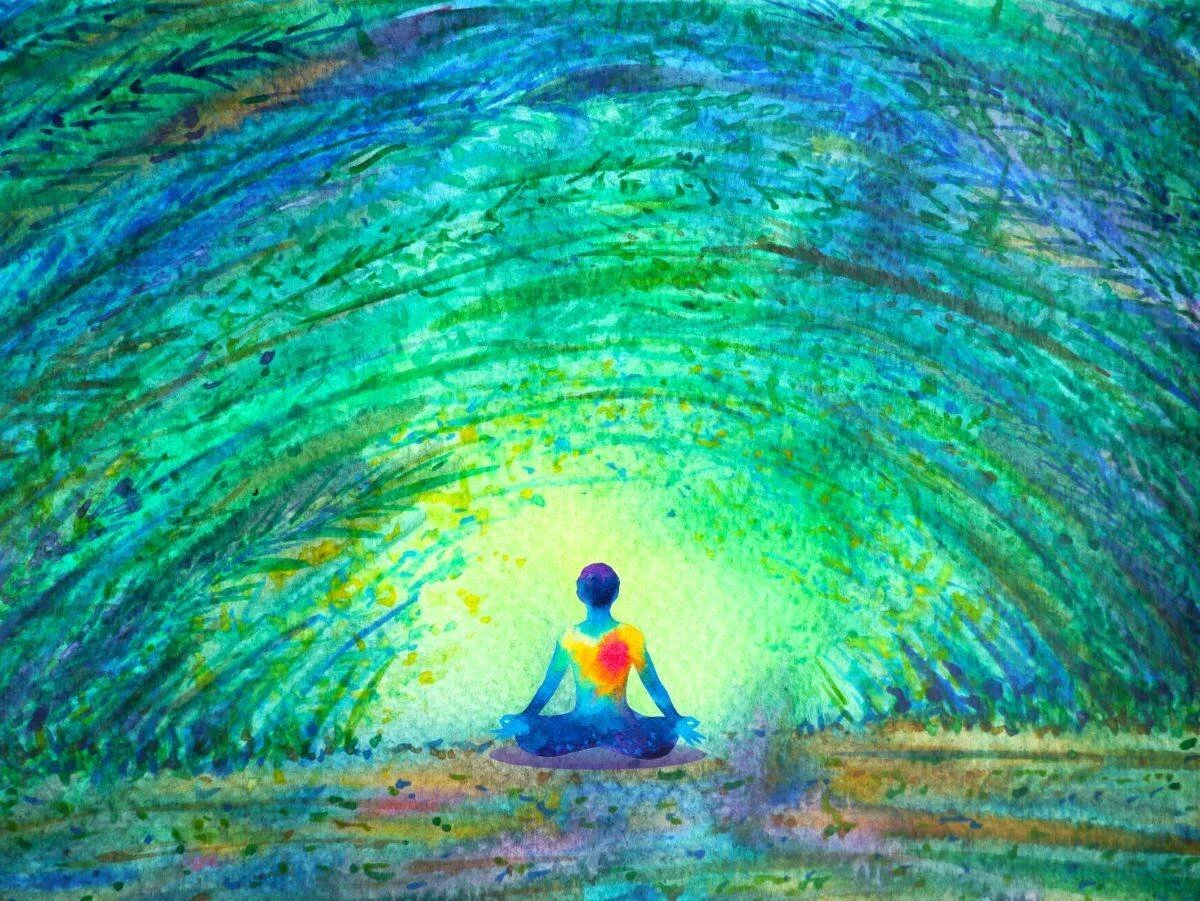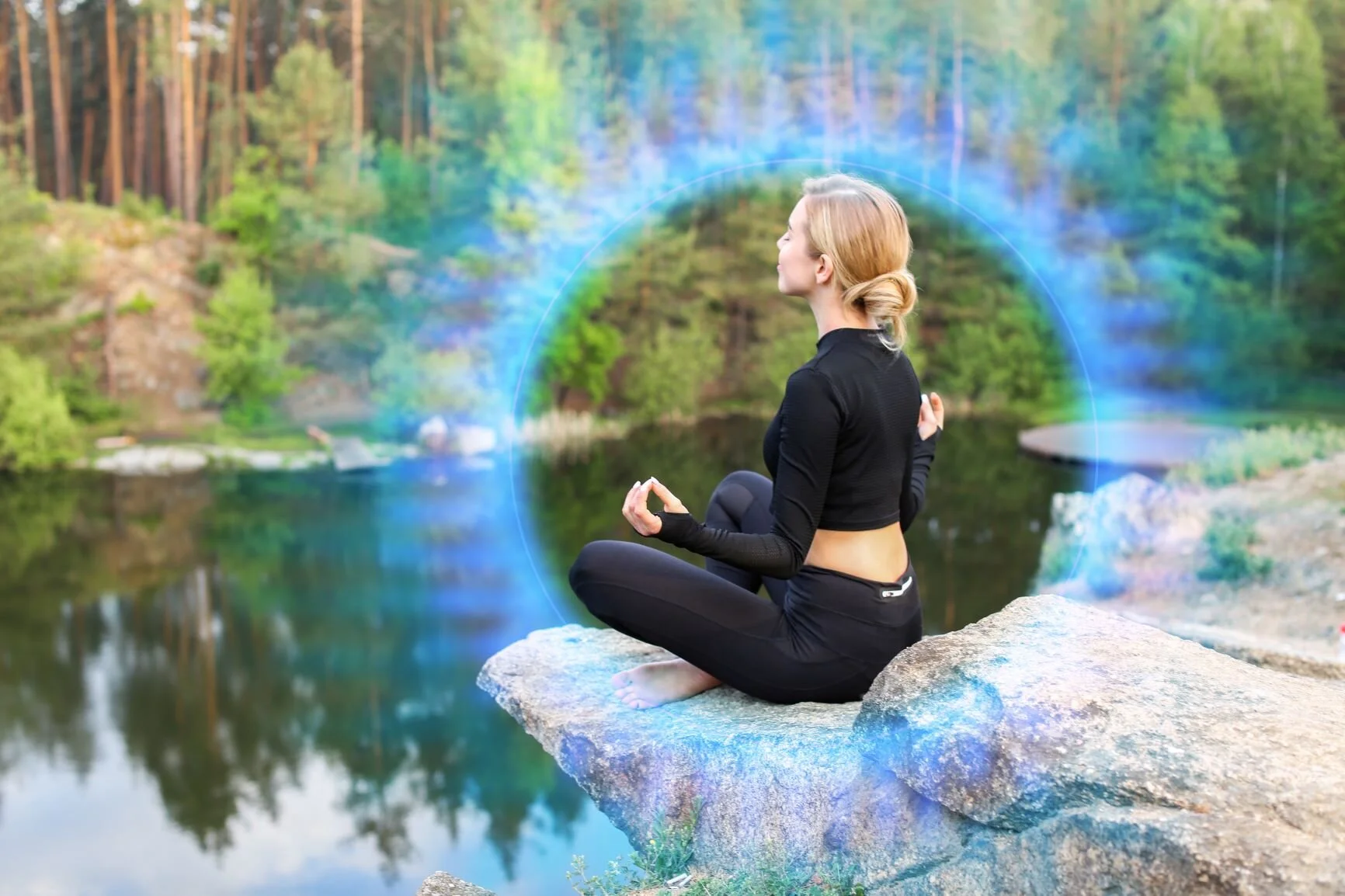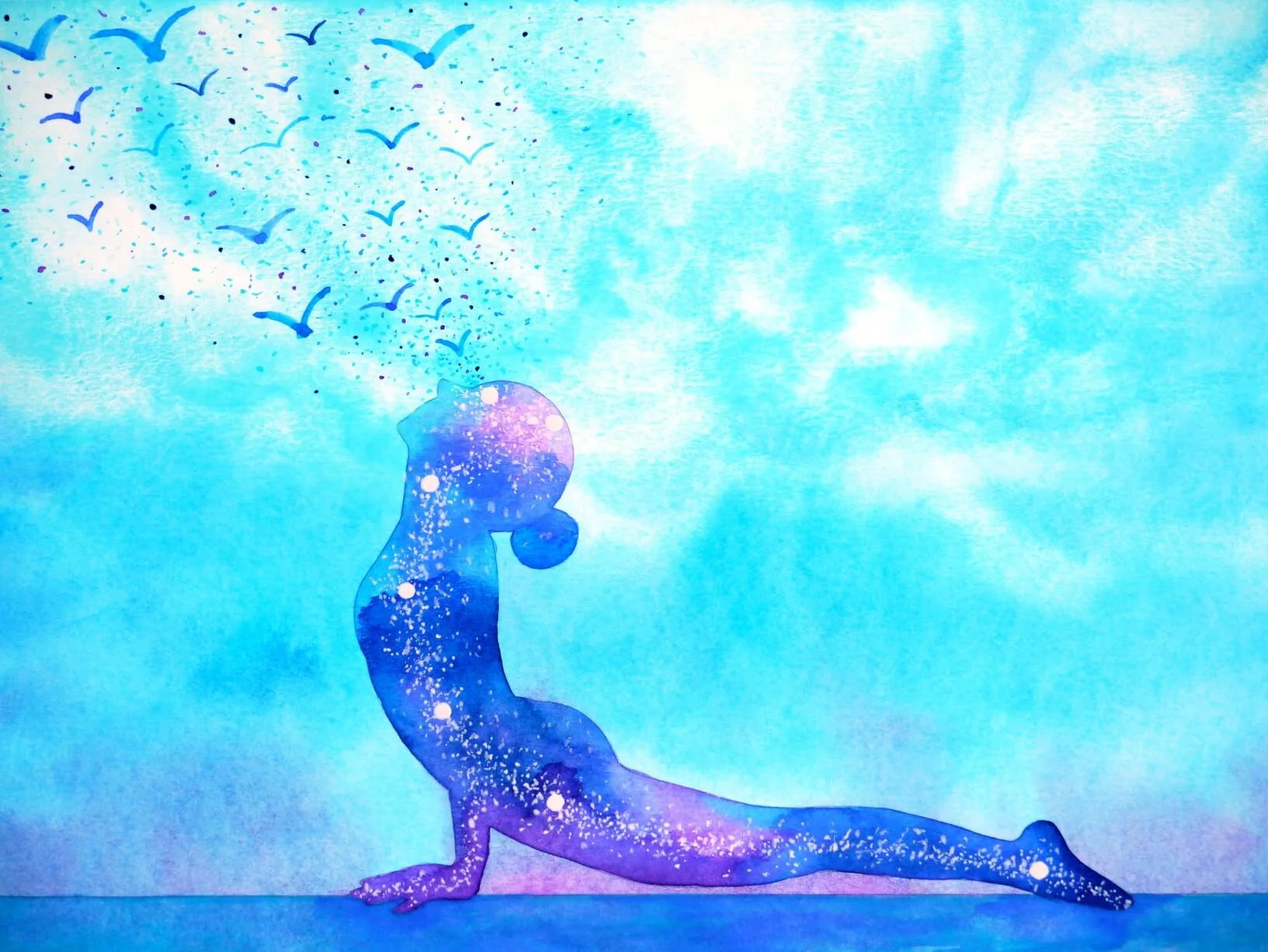In sports, injuries can result from being too flexible, or more flexible than you are strong. In meditation, a crucial balance seems to be sensitivity and strength. Meditation does tend to make you more sensitive, and if you meditate just the right amount for your daily activity, living your life and pursuing your passions will make you stronger. But if you meditate too much, you may become too sensitive too fast. I am thinking of calling this The Dilation Syndrome, because it may be related to the chakras opening too rapidly. The analogy I am making is that opening the chakras is like learning to dilate your pupils – if they are too wide open, then they will not adapt to the light levels, and bright lights will hurt your eyes. You may then become afraid of the light or think "the light is hurting me."
I have just been noticing this syndrome in people who started meditating in their late teens or early twenties, when their personality is not fully formed and they are not fully engaged with the world yet. Here is how the syndrome seems to begin: the individual starts meditating during college years or just after, and has profound inner experiences of peace. They also absorb Eastern teachings encouraging passivity. They do not get the teaching that you need to balance meditation with expression. The more you meditate, the more you need to go out and live it up. They read spiritual material, cultivate a mood of equanimity and calmness, and become more sensitive than they are strong.
As a result of cultivating sensitivity, they start to hate everyone. Because they see themselves as spiritual, everyone else is unspiritual in some way and fallen, except for certain spiritual heroes, who would be the dead Asian males on their altars, and maybe one living Asian male. Then they cover this disgust with humanity with a veneer of compassion or tolerance, and there they go – a person with artificial layers, who even 20 years later is irritable. The irritability shows up in problems forming lasting human relationships and a complicated internal balancing act.
I have to reach here to develop a language to talk about the dynamics. The basic pattern is that the individual has learned to manipulate their internal rhythms through meditation. As part of a spiritual attitude, they suppress their natural dislike of other people. This lowers their guard, dissolves their boundaries. As a result of having too-permeable boundaries, they experience other people as a really "getting under their skin." As a result of this irritation, they find they don't want to be around people. But they get lonely, so they have to be around people. Then they resent the people they are around.
And the whole issue seems to be that the meditator is not living her or his own real life. When people are just in their authentic personality, the energy flow of their own natural movements creates an appropriate boundary, spontaneously. If you keep your chakras, your "energy pupils" too open, then you will always be squinting in the daylight and being hurt by brightness.
APPROACHES TO HEALING DILATION
The basic cure for this syndrome is to rediscover your instinctive joy of life and become more aggressive in pursuing your desires and dreams. This changes the quality of energy flow through and around the body, so you become more attuned to what you want, and therefore less attuned to how gross the world is. This usually takes several years to accomplish - about as much time as it took to get into the syndrome in the first place. Good effects can be felt almost instantly in some cases, if you stop repressing the self. People under the age of about 25 are sometimes able to turn on a dime, once they see the mistake they were making.
If you find yourself feeling overly sensitive, here are some areas to explore.
Aggression. Having a desired outcome and focusing on it narrows the field of attention, and as a side-effect of this narrowing, the chakras become less sensitive to outside impressions. You have to figure out what it is you want, underneath all that spiritual self-brainwashing. And then just go for it.
Diet. Eat meat, or fish or birds. Eat for strength, not "purity."
Sports. Almost all sports require a lot of aggression, competition, and dynamic focus.
Martial Arts. Some of the martial arts consciously activate chi, or the life force, and focus it for defense and attack. This is good energy-exercise and over time can result in the chakras regaining their natural balance between open and closed.
Tai Chi can be especially good for this, as is Qi Gong. How good the art is for you will probably depend on your relationship to the teacher you are working with as much or more than the art you are studying. You can learn a lot from DVDs, so check that out also.
Once you learn how to activate your energy shielding or close your chakras with Tai Chi, expect to have to spend a few minutes a day for many years doing so. It is much more challenging to close the chakras than to open them.
Minimize Meditation Time. Some people I encounter are meditating way too much for their stage of life, and therefore benefit from meditating less. I often meet people who have been meditating for 45 minutes to an hour at a time. There is a natural body rhythm of about 20 minutes, and that is a good minimal amount of meditation for the morning and evening. If that is still too much, meditate for 12 to 15 minutes.










